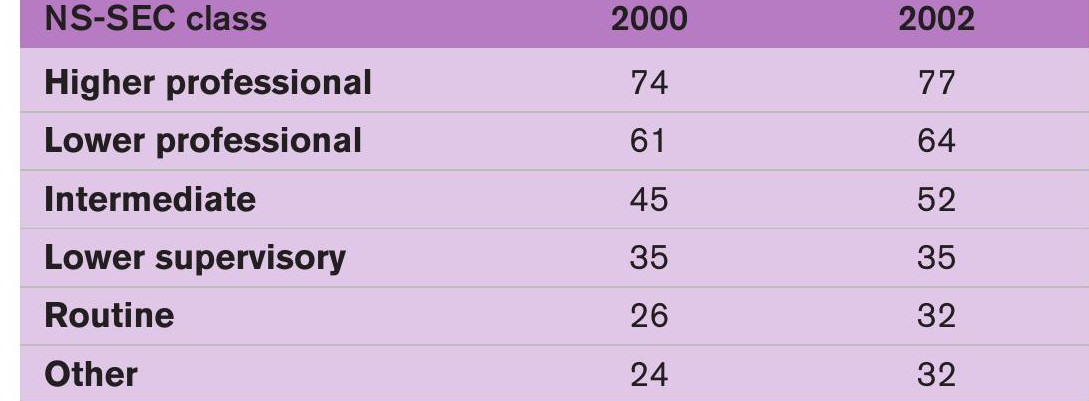
Source: Youth Cohort Study, Department for Education and Skills, quoted in ‘Focus on Social Inequalities 2004’
Factors associated with educational achievement often form the basis of exam questions within the ‘sociology of education’ topic. Note that the phrase ‘educational achievement’ concerns relative success and failure; sometimes you may be specifically asked about low achievement and should answer accordingly. Most students are able to cite social class and ethnicity as factors, and some are aware of the significance of gender. This article takes a brief look at a variety of factors, which are backed up by ‘hard’ statistical data.
Social class as measured by parental occupation has an extremely strong link to children’s educational success in terms of qualifications gained. While the percentage of pupils in England and Wales achieving five or more GCSE grades A*–C has increased, the gap persists between those with parents at the top and the bottom end of the occupational scale (see Table 1).
Your organisation does not have access to this article.
Sign up today to give your students the edge they need to achieve their best grades with subject expertise
Subscribe




